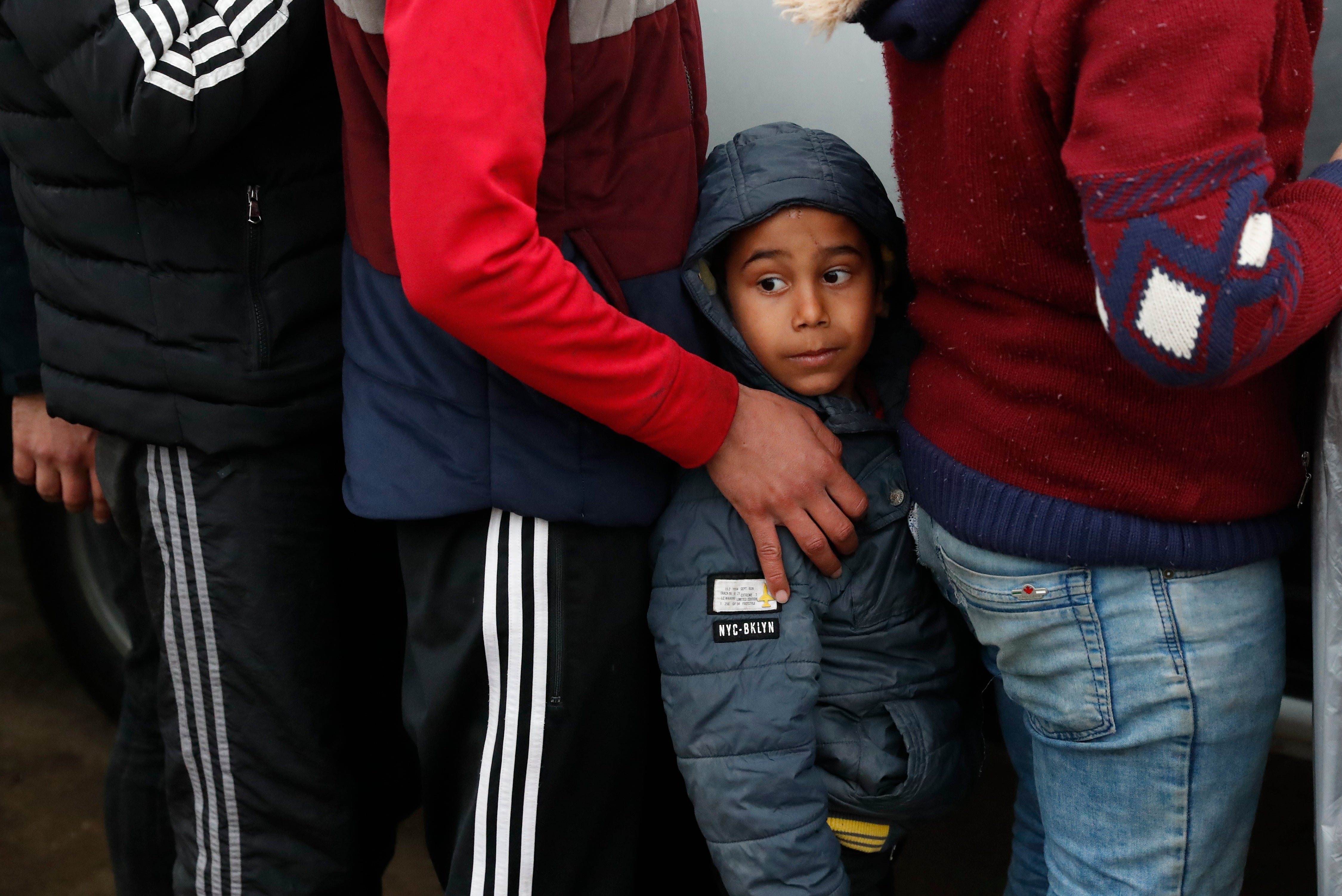Auditors say it's hard to tell how Turkey is using EU refugee funds. Some officials aren't helpful
European Union auditors are struggling to work out whether some of the billions the bloc has sent Turkey to help it cope with Syrian refugees is having an impact

Your support helps us to tell the story
From reproductive rights to climate change to Big Tech, The Independent is on the ground when the story is developing. Whether it's investigating the financials of Elon Musk's pro-Trump PAC or producing our latest documentary, 'The A Word', which shines a light on the American women fighting for reproductive rights, we know how important it is to parse out the facts from the messaging.
At such a critical moment in US history, we need reporters on the ground. Your donation allows us to keep sending journalists to speak to both sides of the story.
The Independent is trusted by Americans across the entire political spectrum. And unlike many other quality news outlets, we choose not to lock Americans out of our reporting and analysis with paywalls. We believe quality journalism should be available to everyone, paid for by those who can afford it.
Your support makes all the difference.European Union auditors said on Wednesday that they are unable to establish whether some of the billions of euros the bloc has given to Turkey to help it cope with Syrian refugees is actually having any impact.
Under a deal concluded between EU leaders and Turkey in 2016, the bloc committed to provide at least 6 billion euros ($6.4 billion) to Turkey to help it cope with migrants crossing in from Syria. Turkey in turn committed to stop migrants leaving its territory for Europe.
In March 2016, a month after the deal came into effect, Turkey’s government said the number of migrants crossing illegally into Greece had dropped from around 6,000 per day in November 2015 to about 130 daily.
In 2021, the leaders announced plans to send a further 3 billion euros ($3.2 billion) for refugees in Turkey. The pact, which was hailed in Europe as a great success, served as a template for other more recent and elaborate deals with Tunisia and Egypt.
Money from the agreement is used to supply cash cards to some of the more than 4 million registered refugees, as well as to improve education and health, help people to better integrate and to build facilities in Turkey that people fleeing the war in Syria might need.
But the European Court of Auditors, or ECA, in a follow-up last year on whether the money was being used effectively, said that Turkey’s education ministry had refused to provide information that might allow them to assess what impact EU projects are having.
“I’m quite sure that European citizens would like to see some results coming out of the various development and humanitarian projects that the EU is funding,” ECA member Bettina Jakobsen told reporters.
According to the European Commission, the bloc's executive branch, at least 530 million euros ($566 million) was destined to “support quality inclusive education of refugees in Turkey.” It's meant to pay teacher salaries and provide education equipment, Turkish language and teacher training, as well as counselling and other guidance.
Auditors sought a list of the schools receiving EU support and the number of refugee pupils who are attending, as well as information on whether children who were not in education had been reintegrated into the school system and their exam pass rates, compared to Turkish students.
Without the data, Jakobsen underlined, “we are not able to conclude on measuring impact or sustainability” of the education projects underwritten by the EU.
Asked by The Associated Press what was preventing the auditors from getting the information from the education ministry, one EU auditor involved in the process said: “They just claimed that they didn’t have the data.”
“We do know that data should normally exist,” said the auditor, who under ECA regulations could not be named. “It’s not up to us to guess why or why not they don’t want to provide the data.”
An ECA official noted that it is relatively rare for authorities to fail to cooperate with auditors.
The auditors and officials from the commission, which is responsible for ensuring that the bloc’s money is correctly spent, made joint and individual requests for the information, but without success.
The auditors were able to visit some schools, as well as hospitals, which benefit from EU funds and could see that the facilities were used by refugees and Turkish pupils and that teachers were working there.
In general, given the challenges of the coronavirus pandemic, a major earthquake that struck Turkey and Syria in February 2023, and Turkey's rampant inflation, the auditors found that the EU funding package “provided relevant support to refugees and host communities” in Turkey.
But Jakobsen also noted that auditors “found weaknesses in the commission’s assessment of project budgets” and said the EU’s executive branch “did not systematically assess whether project costs were reasonable or compare similar costs between different projects.”
___
Follow more AP coverage of migration at https://apnews.com/hub/migration